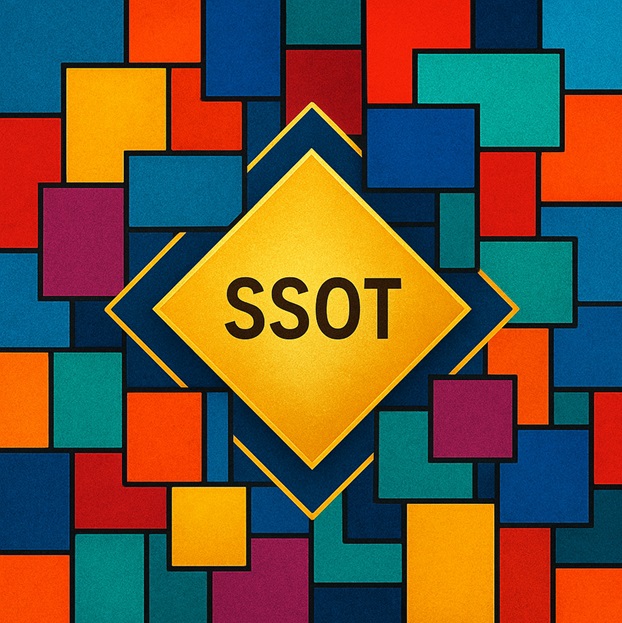The data compatibility blog,
Join the discussion
Establishing a Single Source of Truth as Your Data Foundation
0 October 25, 2025

How Universal Dataset Interoperability Empowers Organizations with Data Accessibility, Consistency, and Trust
In today’s data-driven world, organizations face challenges from the proliferation of diverse, disparate data sources. Perhaps the greatest challenge is that “Only 25% of operations leaders fully trust their data, as organizations struggle with fragmented systems.”
The concept of a single source of truth (SSOT) has emerged as a best data management practice. Your SSOT ensures data reliability, accuracy, and streamlined decision-making. While highly sought after, SSOT is often very difficult to master. However, by leveraging Universal Dataset Interoperability, businesses can easily break down dataset silos by enforcing data integrity between datasets, enhancing collaboration and consistency, all while achieve a robust SSOT data foundation.
What Is a Single Source of Truth?
A SSOT refers to the practice of structuring datasets so that there is a single, complete, seamless, and authoritative data foundation where data is stored, maintained, and accessed. Thus, your SSOT eliminates confusion arising from multiple, conflicting data versions, ensuring that everyone in the organization can rely on a single, consistent data foundation for their operations and analytics.
The Challenge: Dataset Silos and Fragmentation
Traditional data foundations often involve multiple databases, spreadsheets, and applications, each with its own disparate version of information. Furthermore, these disparate datasets are siloed as they lack any data integrity enforcement between them. As a result, these dataset silos fragment your data foundation, hindering complete data access, collaboration, slows down processes, while introducing risk in reporting and compliance.
Universal Dataset Interoperability Explained
To begin, we non-invasively enrich each foundational dataset with standardized master data and metadata. Thus, this standardized data and metadata encapsulates each dataset within a universal wrapper to form Universally Interoperable Datasets. The resulting datasets have data integrity enforced between them, ensuring consistent data across all datasets. In addition, each dataset will have a universal interface for joining with other datasets. We characterize each resulting dataset as a modular plug-and-play dataset that is both analytics-ready and AI-ready. Our Universal Dataset Interoperability is a data management methodology that establishes a consistent, foundational, and modular data fabric composed of these foundational Universally Interoperable Datasets.
Benefits of SSOT with Universal Dataset Interoperability
When we combine the SSOT principle with universal interoperability, we create a modular data fabric that enables universal data access across distributed data platforms, applications, and organizational boundaries. Our modular data fabric opens a whole new world of data. So, instead of working on one disparate dataset silo at a time, you can now work seamlessly on data from any combination of datasets as needed.
Some other key benefits of the modular data fabric include:
- 1. You can access and audit all your data in the fabric.
- 2. Any data inconsistencies can be found and resolved in the fabric.
- 3. You can use the source datasets to verify insights derived from the fabric.
- 4. Enterprise golden records can be established by you in the fabric.
- 5. Audit trails combined with consistent data help your organizations meet regulatory requirements.
- 6. You can add or remove modular datasets from the fabric without disrupting existing datasets.
- 7. Your fabric is both AI-ready and analytics-ready.
Beyond these benefits, the SSOT also adheres to FAIR Data Principles and Object Oriented Data Management Principles.
SSOT Conclusions
Data modernization toward a SSOT data foundation is crucial for organizations seeking to leverage their data effectively. To modernize your data foundation, Universal Dataset Interoperability offers a path of dataset enrichment to achieve dataset consistency, transparency, and collaboration. In conclusion, with the right dataset strategy, businesses can uncover the actual value of their data, while driving innovation and a competitive advantage.
Maxxphase is the sole provider of our patented, Universally Interoperable Datasets and Modular Data Fabrics. For inquiries, comments, or to discuss use cases, please don’t hesitate to contact us.
